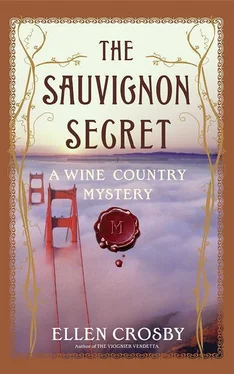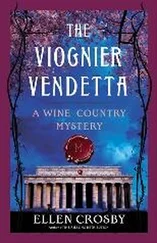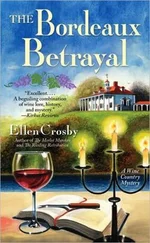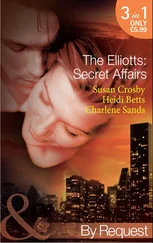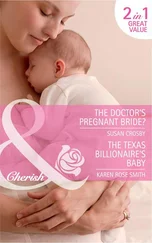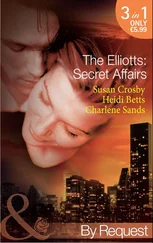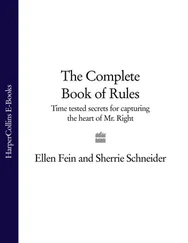“Come!”
He pushed up a pair of reading glasses so they rested on his tanned, bald head and sat back in his chair as I walked in. “Lucie, my dear, how nice to see you. It’s been awhile. What can I do for you?”
Noah and my mother had worked closely together many years ago when she set out to restore the blighted gardens at Highland House, and later when she tackled more substantial landscaping projects at the vineyard and the Ruins. With the tens of thousands of dollars we’d spent at Seely’s over the years, anytime anyone in my family or a vineyard employee came by, we got VIP treatment. But asking Noah to talk about the painful subject of his involvement in carrying out gruesome lab experiments on prisoners, albeit in the name of medical advancement that would prevent future deaths and suffering, wasn’t the same as asking for advice on the color palette for the summer flowers in the courtyard.
There was no point being coy with Noah, and I hadn’t rehearsed how I was going to bring this up, anyway.
“I got your latest brochure about the spring legislative session in Richmond,” I said.
He sat up and folded his hands on top of what looked like a daunting pile of constituent mail and paperwork spread out across his old metal desk. Noah’s office was even more cluttered than it had been when he ran the nursery full-time, with stacks of papers heaped in a semicircle on the floor around him and shoved into empty corners on the tiered shelf where he grew his prize collection of African violets.
“You fill out that survey, you hear? I presume you want to talk about my vote on the transportation bill?” he asked. “Believe me, I’ve been hearing about it.”
I smiled. “I’ll fill it out and no, it’s nothing like that. I came to ask if you knew Charles Thiessman when you both worked for the government.”
I waited for his reaction, which I figured could range from telling me he didn’t discuss that period of his life anymore, so mind my own business, to stunned silence.
“I did,” he said, after a moment. “Why in the world do you want to know?”
“Because I thought you might know some of the people he worked with.”
“Care to be more specific?”
“A woman named Maggie Hilliard. She died in a car accident a little over forty years ago.”
He didn’t say anything at first, just stared at me—or maybe through me—with a faraway, glassy-eyed look like an old movie reel he’d forgotten about had started playing in his head.
“How did you hear about Maggie Hilliard?”
Not a direct answer to the question, but an answer. And more than I’d hoped for.
“Charles told me about her.”
“Really? And what did he say?”
“That she was part of a team of biochemists working on a classified project and he was their supervisor.”
Noah pushed back his chair. At least one of the wheels needed oil. “Take a walk with me.”
I followed him down a back corridor to the staff break room.
“I could use an extra jolt of caffeine this morning. Don’t tell my cardiologist or she’ll kill me before this stuff does,” he said, patting his Santa belly. “Care for a cup of coffee?”
“Sure, thanks.”
He gave me a to-go cup and poured two coffees from a half-full pot, adding a healthy dollop of chocolate-flavored creamer to his and a couple of sugars. I expected that we’d have our chat at the conference table in the middle of the room, but instead he unlocked a door that opened directly onto the back terrace. Under a large metal awning, massed pots of flowers were grouped by color on stepped shelves or spilled out of planters that hung from the rafters above our heads.
“Come on.” Noah reached over and deadheaded a scarlet and purple fuchsia as we walked through the pavilion, tossing the spent blossoms in a trash can. Old habits obviously died hard. “Hope you don’t mind a little walk.”
He took me to the back lot where hundreds of slender young trees with their root balls wrapped in burlap formed a small, wellorganized forest. The wind was soft and warm; the early morning sunlight made shifting patterns of light and dark through the fretwork canopy of the trees. We stopped in the middle of a small grove of pink and white dogwood.
“Make you a deal. I’ll tell you what I can about what Maggie Hilliard was working on if you tell me what you know about what happened to her—and Charles Thiessman. I still can’t go into detail, but there’s plenty of stuff in the public domain that you could find out on the Internet, if you knew where to look.”
“Why do you want to know about Maggie?” I asked.
“Why else? Your basic human curiosity.” He took the lid off his coffee and swirled the cup around. “There were loads of rumors about that car accident. No one ever found out if any of them were true. Charles kept his yap shut all these years and so did the rest of that group of rebels working for him. I don’t know how he did it.”
“Wasn’t keeping quiet about things the nature of your business?” I asked.
He smiled. “Of course it was. But hell, Charles could have sold the Sovs the combination to the nuclear codes and gotten away with it. He was like Teflon, nothing stuck to him. If he’s finally willing to open up about what happened to that girl, I’d like to know.”
“This needs to stay just between us, Noah. Please don’t say anything to anybody.”
He rolled his eyes. “First, I have some practice keeping secrets. Second, there aren’t too many anybodies left to tell after forty years. And third, when have I ever let you down?”
“I didn’t get that sled I wanted for Christmas when I was ten.”
He grinned. “Once. Big deal. And I’m sure there was a very good reason, young lady.”
I laughed. “Okay, fair enough.”
“Ladies first,” he said. “Please enlighten me. What did Charles tell you about Maggie’s accident?”
I sipped my coffee. “He said she left a party drunk one night and drove her car off the bridge to Pontiac Island and drowned.”
“Huh. The papers said that. That’s nothing new.”
“She was … romantically involved with Charles when it happened.”
“As in having sex?”
My face turned red. “Yes.”
“Want to tell me how you know?”
“A photograph.”
“How interesting. Sets up the possibility of blackmail.”
“Not at the time. The only person who knew about the photograph appears to have been the person who took it. That is, until very recently when the photo resurfaced. And now there’s no one left to blackmail, so it’s sort of moot.”
“I see. Well, either way, it explains a lot, though I can’t say I’m surprised at Charles going after Maggie Hilliard. He had a reputation as a skirt chaser and she was a knockout,” he said. “Still, it’s curious. She was supposed to be pretty tight with one of the other scientists. Rumor was she was sleeping with the guy who ran the project. It was a bigger deal in those days, people went to some trouble to keep that kind of thing quiet. His name was Graf. Theo Graf. Hell of a smart guy, really brilliant. Tore him up something awful when she died. I heard he had a huge row with Thiessman and they nearly came to blows. Then he was gone, and soon after that everyone involved in that project left, too.”
“According to Charles, Theo Graf didn’t know about him and Maggie.”
Noah shrugged. “You wonder. Anyway, that crowd was a bunch of rogues, working on something that should have been shut down after Nixon signed the order stopping all biological and chemical weapons research. It was one thing to be conducting experiments on weaponizing anthrax in wartime when you knew the Japanese and Germans were doing it, but how the hell could you justify it to a bunch of politicians and the American public in peacetime? Obviously not everyone agreed with the president—it was still the Cold War—and Charles found the right people willing to look the other way. The U.S. didn’t sign the international treaty outlawing that stuff for good until 1972.”
Читать дальше
